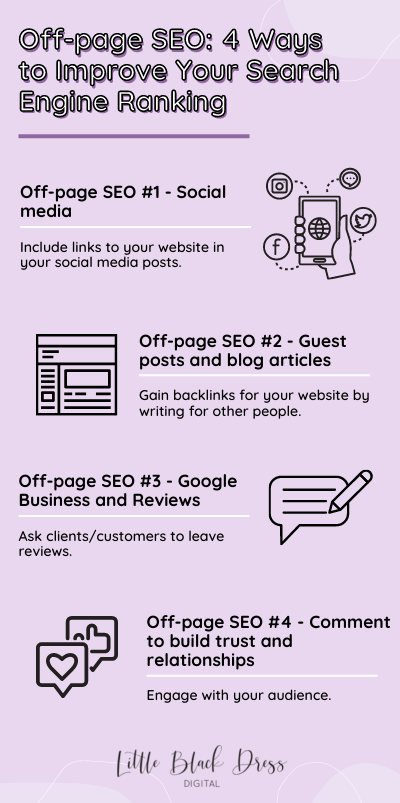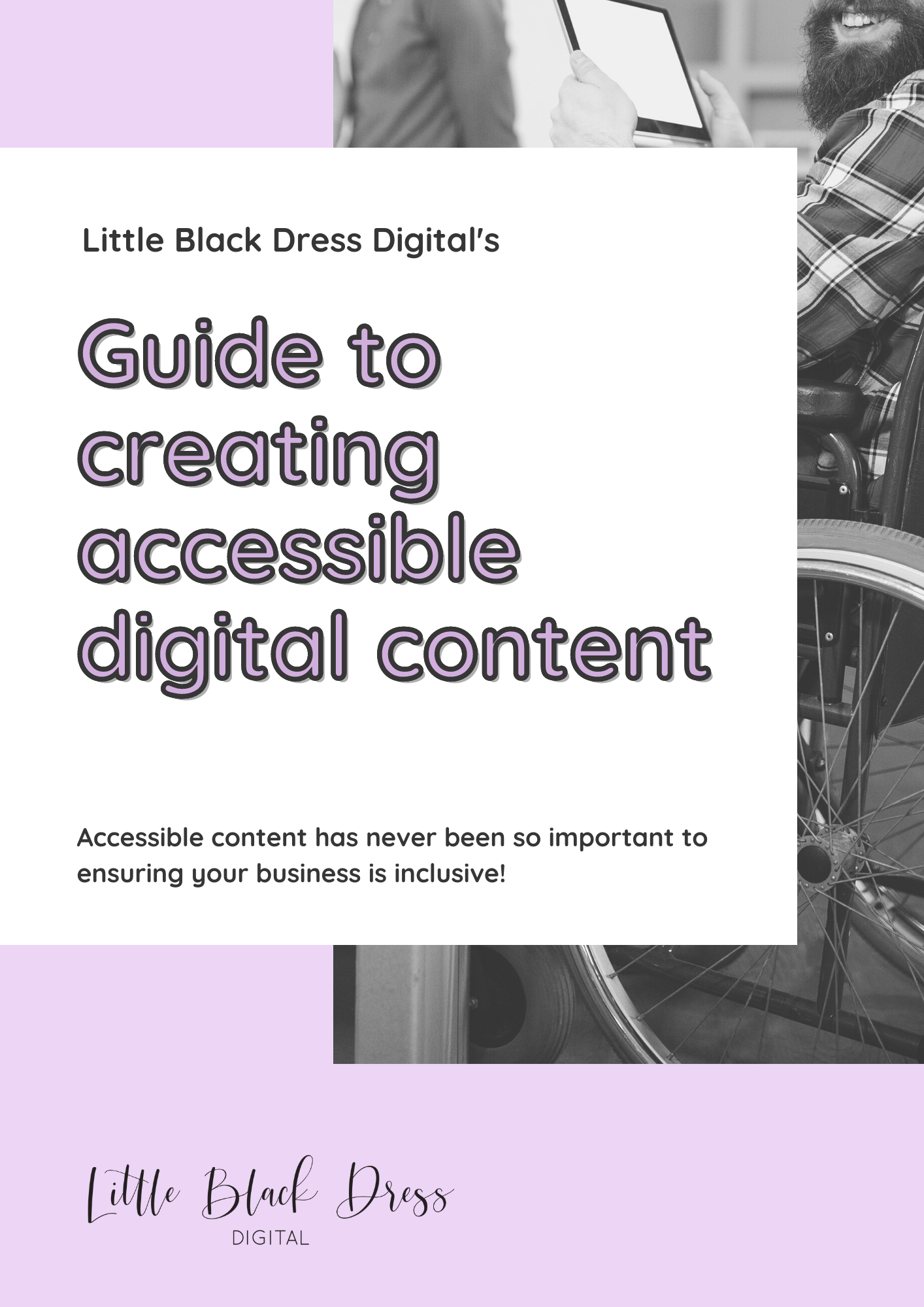SEO (or search engine optimisation) is an algorithm that is constantly changing. What people might not know is that it actually consists of two parts; on-page SEO and off-page SEO.
This blog article will take you through the steps on how to implement off-page SEO and what you need to consider when it comes to improving your search engine ranking.
Off-page SEO: The Basics
What is off-page SEO? How is it important?
Firstly, SEO is defined by SEM rush as any activity that improves your website’s search engine ranking and visibility. Off-page SEO occurs outside of your website and its web pages, hence the term “off-page”. This type of SEO is all about building authority and credibility. It is often achieved by what is called “link building”. This is when external websites or platforms link back to your website on content that is relevant.
The strategies aim to tell Google (or whichever search engine people use) that your website is the best when it comes to that particular keyword a person is searching. This is important when it comes to increasing your ranking on search engine pages and as a result, increasing the amount of traffic your website receives.
Differences between on-page vs off-page SEO
As we previously mentioned, off-page occurs off the website. Therefore the “on-page” SEO happens on your website’s web pages. It is slightly more technical and is often undertaken by the web developer or designer when constructing your website (we have written a blog about Search Engine Optimisation: 4 Easy Tips for Beginners in 2022 if you’re building your own website).
As off-page SEO is about content and not the website design, this type of SEO can be done by a marketer, in particular, someone or an agency that specialises in digital marketing. They will work links from your website effortlessly into social media blogs, emails and blog articles.
With our off-page SEO checklist, you’ll also be able to improve your off-page SEO, even if you’re not a marketing expert!
Off-page SEO Strategies to Improve your Ranking
Off-page SEO #1 – Social media
Have you ever wondered why companies include links to their websites in their posts? Not only does it help to drive traffic to their website, but it also helps with off-page SEO.
Social media (and owned accounts) is one of the platforms where you have complete control. It is also external to your website and therefore counts as off-page SEO. Maximising your reach on social media and the number of times your post gets shared further helps to add to you and your website’s credibility.
The most important thing is that you want to ensure that the link in the caption is relevant to the content in the post. For example, are you talking about a particular product? Then include a link to the product in the post. Telling them that you’ve written a new blog post? Then include a link to the article.
Sometimes you’re going to have posts where including links doesn’t seem natural or it seems you’re adding them for the sake of it. In this case, it’s ok not to use a link. Just remember to use them as much as possible.
Off-page SEO #2 – Guest posts and blog articles
On-page SEO is one of the reasons why you should add a blog page to your website, but guest posts and blog articles on other websites help your off-page SEO. These backlinks help to tell the search engine that you are knowledgeable in that particular area and that your website has the details that people need when looking for information on that subject.
When considering backlinks in this regard, it’s also important to know that search engines place different weights on different websites. A website that is seen as more credible in the search engine’s eyes (e.g. The West) will provide better backlinks than a random person’s blog.
Therefore, when searching for websites that will get you the strongest backlinks, look for websites or platforms that have credibility. Ask yourself, are they relevant to my niche/audience, do they appear high up on Google and do they have a good reputation?. If the answer is yes to all three questions, then they are a good website to get backlinks from.
Then to get these opportunities and backlinks, you need to learn how to pitch yourself. When sending cold emails include a bit about yourself, ideas you have for your article and how that will benefit their audience. Similarly, you can hire a PR agency to find companies that will write stories about you which should include links to your website.
Off-page SEO #3 – Google Business and Reviews
Google Business is referred to as “local SEO”. It is all about making sure that Google knows what area you work in so that when someone searches “Perth digital marketing” (for example), Google knows to show them your website. The easiest way to do this is by simply adding your address to the information page.
Google Business also allows you to include a link to your website, list which services you offer and include keywords in the bio, which further helps your off-page SEO. So, if you are an online business like LBD Digital, which can offer its services to anyone in the world, setting up Google Business is still a good idea, even if it doesn’t help directly with local SEO.
Google Business is even better because it also allows customers/clients to leave reviews. With 9 in 10 people trusting recommended brands, reviews not only help your business but also your off-page SEO. The process is very straightforward too. Simply google your business, scroll down to “get reviews”, click it and then pick a way you’d like to send people the link to leave a review.
Off-page SEO #4 – Comment to build trust and relationships
Off-page SEO is all about leaving links to your website wherever possible, as long as it’s relevant. However, it’s even better when other people leave links to your website. Hence building trust and relationships are so important, just like it is for general business.
Start by commenting on posts and forums that are relevant to your niche. Leaving meaningful comments to help build relationships and leave insightful comments to help build yourself as an industry expert. Where possible (e.g. on forums or posts asking for recommendations) include a link to your website.
Getting your name out there increases your chances of other people backlinking to your website, whether this is through sharing your social media, recommending your website to someone else or even PR activities, all of which improves your off-page SEO.

Off-page SEO: Wrapping Up
Choosing an off-page SEO service
When it comes to deciding who will implement your off-page SEO strategy, you have two options. You can either do it yourself with the checklist outlined in this blog article or you can hire a digital marketing company. If the latter is the option you’re considering, get in touch to see how LBD Digital can help!


